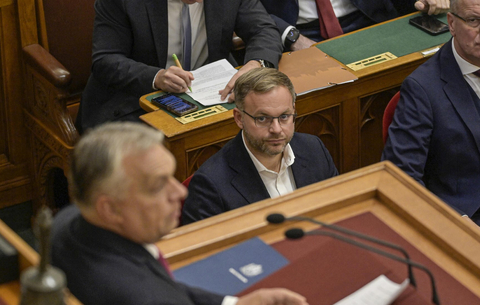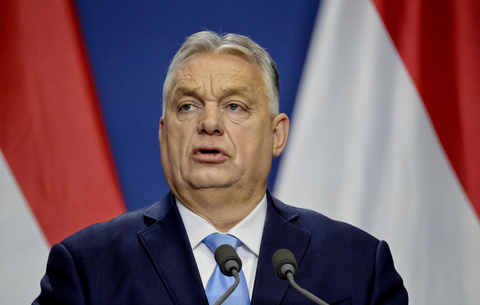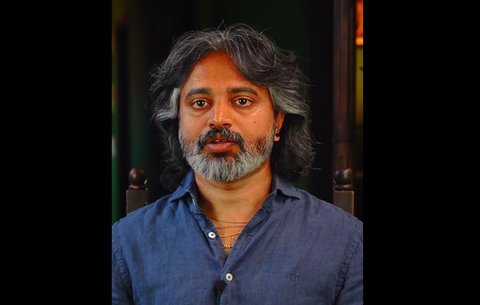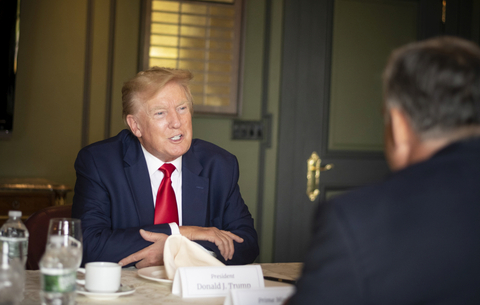"Third way" platform
There will be a new party to vote for come 2006. The Hungarian Truth and Life Party (MIÉP), the Movement for a Better Hungary (Jobbik) will campaign on a joint platform, MIÉP-Jobbik Third Way. István Csurka's new electoral alliance could take votes away from Fidesz.
"We've nothing to with them. We never did and we never will." This was MIÉP's view of the Jobbik in June 4 press release. But things have changed since then. Last week, the two organisations announced that they were forming an electoral alliance. MIÉP's furious antipathy was understandable - the Jobbik was composed mainly of MIÉP deserters.
So there have been skirmishes aplenty over recent years. Csurka applied his favourite soubriquet to the Jobbik leaders. He called Dávid Kovács, the party's chairman, a Mossad agent. Other party leaders were merely agents of the Socialists. And another ex-MIÉP figure was merely an "agent of the Jobbik." The Jobbik were much more cautious - their concerns mostly related to Csurka's leadership style.
And now it's the Jobbik who have had to make the most compromises. The party was set up in opposition to Csurka's wing of MIÉP. But with the new cooperation agreement, they have buried their earlier differences of opinion. "We're not interested in sixth-order personal problems," said Kovács at the press conference at which the new party alliance was announced.
There is no way of knowing how much support the new party will get. Pollsters forecast 1-2% support for MIÉP at next year's elections, and respondents are rarely even asked for their opinion of the Jobbik. But this is misleading. MIÉP got 2.35% in last year's European elections, and the Jobbik recently got more than 4% in a local by-election. A party alliance could bring them within shouting distance of reaching the 5% of the vote needed to enter parliament.
One reason for the alliance is that supporters of the two parties were furious that many Fidesz MPs (and Viktor Orbán himself) voted in favour of Romania's accession to the EU. Csurka's camp believes that this will cost Fidesz votes.
Fidesz has not yet reacted officially to the new situation. Zoltán Pokorni, the party's vice-president, simply asked why the media paid so much attention to the affair.
In Fidesz circles, there has long been talk of creating a satellite party that would collect the votes of the nationalist right. This would allow Fidesz to move towards the centre. But MIÉP did not seem suited for this role, since Csurka's rhetoric was not suited for international consumption. Fidesz looked to the Hungarian Democratic Forum (MDF), but Ibolya Dávid, that party's chairman, dashed these hopes.
Things have been easy for Fidesz up until now. There was no other right-wing party that seemed to have a hope of getting into parliament. So right wing votes more or less belonged to Fidesz. But a MIÉP-Jobbik alliance could easily take away Fidesz votes. So the party has two options. The first is to leave the nationalist right vote to the new party - and risk losing votes, if the new formation doesn't get into parliament. And if they do get in, do they then work together?
The other option is for Fidesz to try and get those radical votes for itself. But to do this they have to strike a tone that might drive more moderate voters away. And saying two things to two different constituencies is a highly risky manoeuvre.
So there have been skirmishes aplenty over recent years. Csurka applied his favourite soubriquet to the Jobbik leaders. He called Dávid Kovács, the party's chairman, a Mossad agent. Other party leaders were merely agents of the Socialists. And another ex-MIÉP figure was merely an "agent of the Jobbik." The Jobbik were much more cautious - their concerns mostly related to Csurka's leadership style.
And now it's the Jobbik who have had to make the most compromises. The party was set up in opposition to Csurka's wing of MIÉP. But with the new cooperation agreement, they have buried their earlier differences of opinion. "We're not interested in sixth-order personal problems," said Kovács at the press conference at which the new party alliance was announced.
There is no way of knowing how much support the new party will get. Pollsters forecast 1-2% support for MIÉP at next year's elections, and respondents are rarely even asked for their opinion of the Jobbik. But this is misleading. MIÉP got 2.35% in last year's European elections, and the Jobbik recently got more than 4% in a local by-election. A party alliance could bring them within shouting distance of reaching the 5% of the vote needed to enter parliament.
One reason for the alliance is that supporters of the two parties were furious that many Fidesz MPs (and Viktor Orbán himself) voted in favour of Romania's accession to the EU. Csurka's camp believes that this will cost Fidesz votes.
Fidesz has not yet reacted officially to the new situation. Zoltán Pokorni, the party's vice-president, simply asked why the media paid so much attention to the affair.
In Fidesz circles, there has long been talk of creating a satellite party that would collect the votes of the nationalist right. This would allow Fidesz to move towards the centre. But MIÉP did not seem suited for this role, since Csurka's rhetoric was not suited for international consumption. Fidesz looked to the Hungarian Democratic Forum (MDF), but Ibolya Dávid, that party's chairman, dashed these hopes.
Things have been easy for Fidesz up until now. There was no other right-wing party that seemed to have a hope of getting into parliament. So right wing votes more or less belonged to Fidesz. But a MIÉP-Jobbik alliance could easily take away Fidesz votes. So the party has two options. The first is to leave the nationalist right vote to the new party - and risk losing votes, if the new formation doesn't get into parliament. And if they do get in, do they then work together?
The other option is for Fidesz to try and get those radical votes for itself. But to do this they have to strike a tone that might drive more moderate voters away. And saying two things to two different constituencies is a highly risky manoeuvre.
English version
hvg.hu
2005. október. 17. 10:05
Opinion
English version
hvg.hu
2005. október. 07. 11:32
Unconstitutional?
English version
hvg.hu
2005. október. 14. 14:12
HUF 336billion?
English version
hvg.hu
2005. október. 10. 11:14









